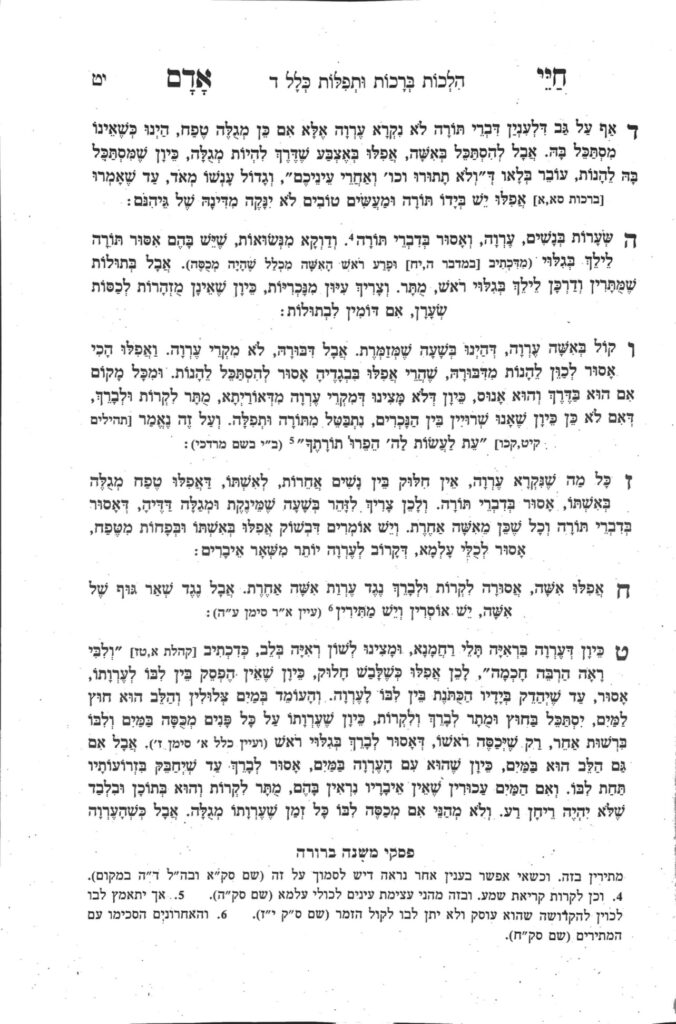We are continuing in siman 5, learning about the chiyuv a woman has to cover certain parts of her body. Yesterday, we learned about the chiyuv deoraysa to cover hair, and left off with the question of whether we can extend this chiyuv to other parts of the body.
- The sefer Levusha Shel Torah quotes Rav Elyashiv ztl as holding that we extend the chiyuv of hair to other parts of the body. The pasuk which teaches us that a sotah’s hair was uncovered is also used by the Gemara to learn that parts of her clothing were uncovered as well, so he understands it is a din deorasya to cover other parts of the body as well. Although other body parts are the subject of discussion, covering the torso is certainly included in this din deoraysa. To review, this chiyuv is not due to lifnei iver, but rather because it is an inherent part of being a Jewish woman.
Other issurim which will apply to not dressing properly are:
- We learned (shiur 1536) that the halacha of machaneh does not apply to ervah and only applies to tzoah. However, the Sema”k, one of the rishonim, understands that the source for the concept of machaneh, the pasuk of vehaya machanecha kadosh, teaches that both men and women have a chiyuv to be tzanua. Thus, even if the halacha of four amos does not apply, the chiyuv to be tzanua, and not to engage in devarim shebikedusha within eyesight of ervah, still applies.
- The Rambam understands that the mitzvah of bechukoseihem lo seileichu means to dress in a manner of tznius, and not to follow in the ways of the goyim who do not dress in a tznius manner.
- Additionally, there is a mitzvah of kedoshim tihiyu, which Rashi explains refers to distancing from arayos. Anything which brings a person closer to arayos would be a lack of fulfilling this mitzvah.
- There is much misunderstanding regarding the issur of lifnei iver. Women will ask why it is their responsibility if men are not thinking or acting properly, especially if they are not actively trying to grab their attention. We will discuss this question in the next shiur, be’ezras Hashem.
- The sefer Levusha Shel Torah points out that the pasuk says lo sikrevu legalos ervah. The Rambam writes in Issurei Biah that a man who simply looks at a woman who is assur to him to see her beauty transgresses this issur. Others understand it is not deoraysa, but there may be other pesukim which make it an issur deoraysa.
We see there are many issurim involved in the obligation to dress in the proper way.
Summary
- A married woman’s hair is considered ervah deoraysa, and one cannot recite devarim shebikedusha in her presence.
- The chiyuv for a woman to cover her torso is understood to be a din deoraysa.
- Other issurim included in not dressing properly include vehaya machanecha kadosh, bechukoseihem lo seileichu and kedoshim tihiyu.



